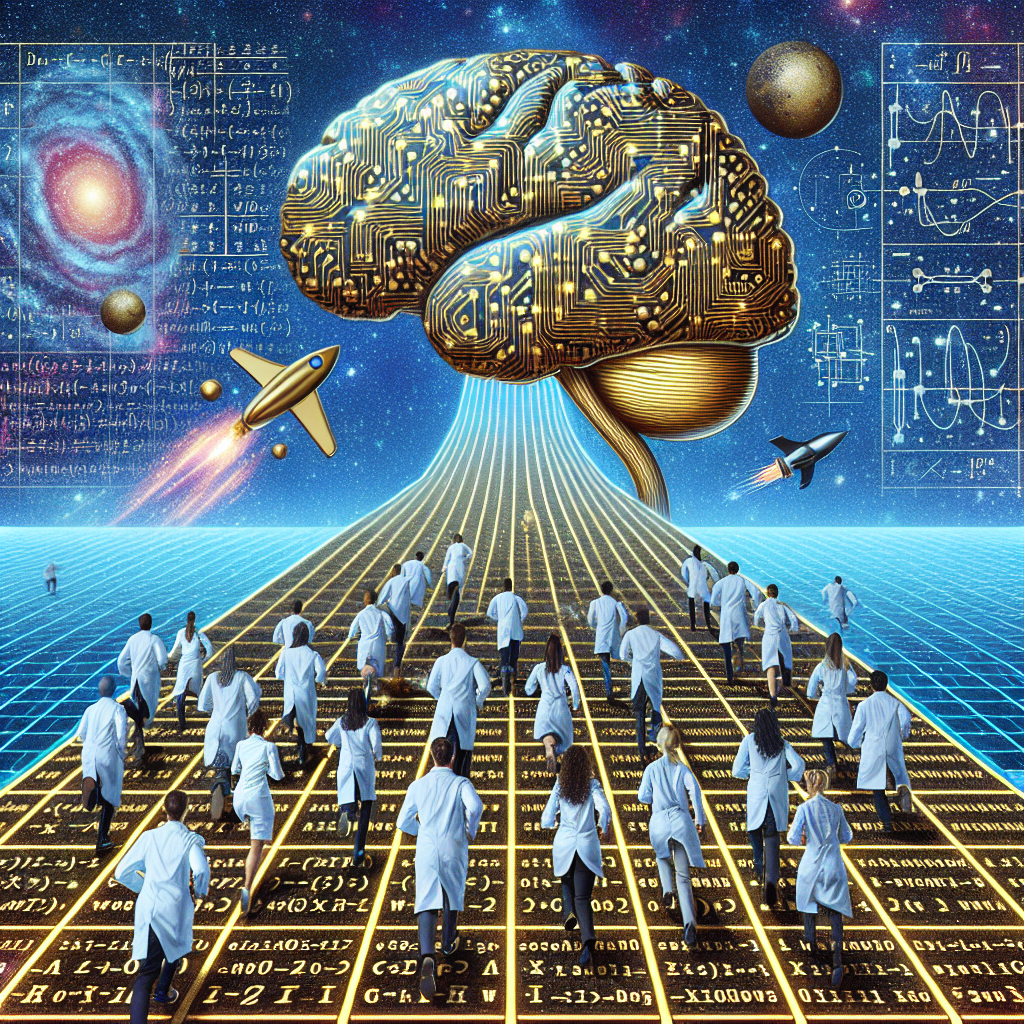The Race Towards Achieving Artificial General Intelligence
Artificial intelligence (AI) has been a hot topic in the technology industry for the past few decades. From self-driving cars to virtual assistants, AI has infiltrated nearly every aspect of our lives. However, there is a new frontier in the AI field that researchers and developers are racing towards – achieving artificial general intelligence (AGI).
AGI refers to a machine’s ability to understand, learn, and apply knowledge in a way that is indistinguishable from human intelligence. While current AI systems excel at specific tasks, such as image recognition or natural language processing, they lack the flexibility and adaptability of human intelligence. The quest for AGI is driven by the desire to create machines that can think and reason like humans, with the potential to revolutionize industries and society as a whole.
In this article, we will explore the current state of AGI research, the challenges and opportunities it presents, and the implications of achieving AGI. We will also address common questions and misconceptions surrounding AGI in a FAQs section at the end.
The Current State of AGI Research
The journey towards AGI has been a long and challenging one. While researchers have made significant progress in the field of AI, achieving AGI remains a distant goal. Current AI systems are limited by their narrow focus, relying on vast amounts of labeled data and specific algorithms to perform tasks. AGI, on the other hand, requires a more holistic approach to intelligence, encompassing reasoning, problem-solving, and learning capabilities.
One of the key challenges in AGI research is defining what intelligence actually means. While humans possess a wide range of cognitive abilities, from language understanding to creativity, replicating these capabilities in a machine is no easy task. Researchers are exploring different approaches to AGI, from neural networks inspired by the human brain to symbolic reasoning systems that mimic human thought processes.
Another challenge in AGI research is the lack of a unified framework for measuring and evaluating intelligence. While traditional AI systems can be benchmarked against specific tasks or datasets, evaluating the general intelligence of a machine is a more complex and subjective process. Researchers are working on developing new metrics and benchmarks to assess the progress towards AGI and compare different approaches.
Despite these challenges, there have been some promising developments in the field of AGI research. Advances in deep learning, reinforcement learning, and natural language processing have pushed the boundaries of AI capabilities, bringing us closer to achieving AGI. Companies like OpenAI and DeepMind are at the forefront of AGI research, leveraging cutting-edge technology and collaboration with the academic community to drive innovation in the field.
The Opportunities and Implications of Achieving AGI
The pursuit of AGI presents a wide range of opportunities and implications for society. On the one hand, AGI has the potential to revolutionize industries, from healthcare to finance, by automating complex tasks and decision-making processes. Machines with AGI capabilities could assist doctors in diagnosing diseases, help financial analysts predict market trends, and even create art and music that rivals human creativity.
AGI also has the potential to address some of the most pressing challenges facing humanity, from climate change to global inequality. By harnessing the power of AI to analyze and optimize complex systems, we could find innovative solutions to these problems and create a more sustainable and equitable world. AGI could also enhance our understanding of the universe, by analyzing vast amounts of data from telescopes and satellites to uncover new insights about the cosmos.
However, achieving AGI also raises ethical and societal concerns. The prospect of machines with human-like intelligence raises questions about the impact on the job market, privacy, and security. Will AGI systems replace human workers in certain industries, leading to widespread unemployment? How can we ensure that AGI systems are used ethically and responsibly, without infringing on individual rights and freedoms? These are just some of the questions that researchers and policymakers are grappling with as we move closer to achieving AGI.
FAQs about Artificial General Intelligence
Q: What is the difference between narrow AI and AGI?
A: Narrow AI refers to AI systems that are designed to perform specific tasks, such as speech recognition or image classification. AGI, on the other hand, refers to machines that possess the full range of human cognitive abilities, including reasoning, problem-solving, and creativity.
Q: How close are we to achieving AGI?
A: While significant progress has been made in AI research, achieving AGI remains a long-term goal. Researchers are still working on developing the necessary technology and algorithms to create machines with human-like intelligence.
Q: What are the potential benefits of achieving AGI?
A: AGI has the potential to revolutionize industries, improve decision-making processes, and address complex challenges facing society. Machines with AGI capabilities could assist in healthcare, finance, and scientific research, leading to new innovations and discoveries.
Q: What are the ethical concerns surrounding AGI?
A: The rise of AGI raises concerns about job displacement, privacy, and security. Researchers and policymakers are working to address these issues and ensure that AGI is developed and deployed in a responsible and ethical manner.
In conclusion, the race towards achieving artificial general intelligence represents a significant milestone in the field of AI research. While there are still many challenges to overcome, the potential benefits of AGI are vast, from revolutionizing industries to solving global challenges. As we continue to push the boundaries of AI capabilities, it is essential to consider the ethical and societal implications of achieving AGI and work towards a future where machines and humans can coexist harmoniously.

